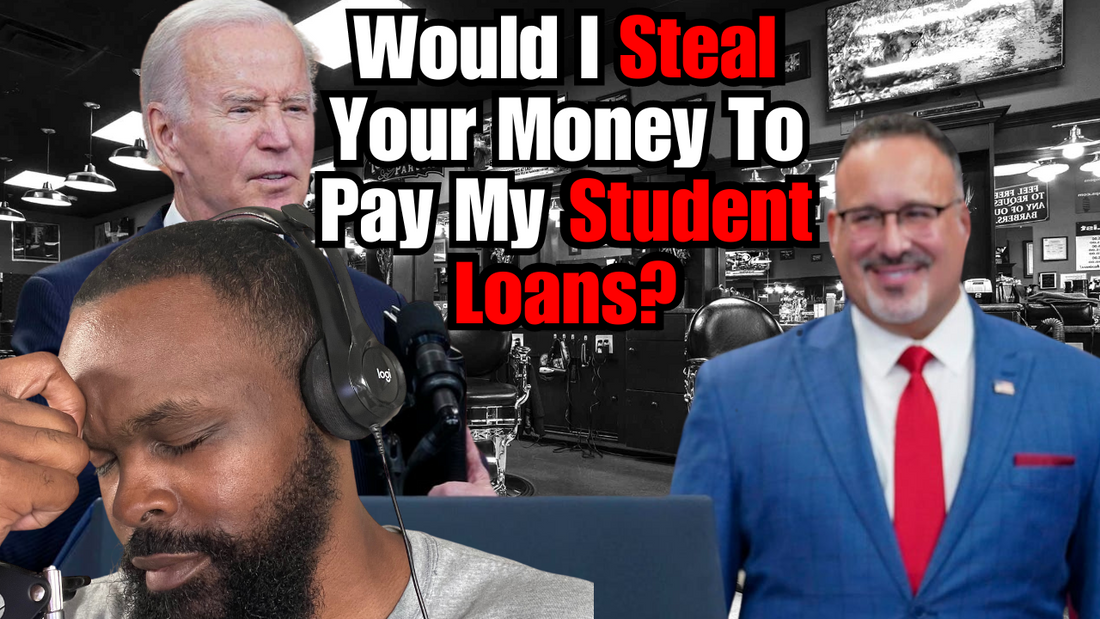The topic of student loan forgiveness has sparked significant debate, especially with President Joe Biden’s initiatives to alleviate the financial burden on millions of borrowers. A viewer recently questioned why they should be responsible for paying off other people's student loans if Biden forgives them. This article delves into the multifaceted arguments surrounding student loan forgiveness, examining the fairness and broader economic implications.
Bailouts and Fairness
The viewer’s perspective is understandable: why should taxpayers foot the bill for someone else’s education? However, it’s crucial to consider the context of other bailouts. Big corporations, banks, and even foreign countries frequently receive financial aid from the government. Wealthy individuals also benefit from tax structures that minimize their tax burdens. If these entities are eligible for bailouts, it’s challenging to argue that student loan forgiveness is inherently unfair.
The Reality of Student Loans
The recent three-year pause on student loan payments saw nearly 19 million borrowers not making any payments since the pause ended in October. Despite Biden forgiving $67 billion in debt for nearly 5 million borrowers, many more still struggle. Former Trump economic advisor Stephen Moore highlights a critical concern: the government’s approach to student loans may discourage future repayment. If borrowers believe their loans will eventually be forgiven, fewer will feel compelled to repay their debts.
The Predatory Nature of Student Loans
The discussion must also address how the availability of student loans has impacted college tuition rates. Colleges have significantly increased tuition, knowing that government-backed loans would cover the costs. This dynamic is akin to a guaranteed paycheck, removing the competitive pressure to keep tuition affordable. The result is skyrocketing education costs and substantial student debt, often for degrees that do not offer commensurate financial returns.

A Call for Fairness in Employment
An intriguing proposition is to prohibit employers from requiring a college degree for job applications. This could compel companies to invest in on-the-job training, reducing the necessity of a college degree for career opportunities. Such a shift might alleviate the need for student loans altogether, fostering a system where practical experience is valued over formal education.
Government Subsidies and Public Opinion
The debate over who should bear the cost of student loan forgiveness is intertwined with broader issues of government subsidies. Many Americans benefit from various forms of government assistance, whether in business grants, state subsidies, or federal aid programs. It’s worth questioning why student loan forgiveness is seen differently. The sentiment that life isn’t fair, while true, shouldn’t preclude efforts to rectify systemic imbalances, especially when they disproportionately affect certain demographics.
The Broader Economic Impact
Critics argue that student loan forgiveness exacerbates the national budget deficit. With the U.S. running a substantial budget deficit, the allocation of hundreds of billions of dollars to forgive student loans seems fiscally irresponsible. Moreover, this forgiveness could set a precedent that undermines the repayment system, further straining public finances.
Conclusion
The student loan forgiveness debate is a microcosm of broader economic and social issues. It touches on the principles of fairness, government responsibility, and the value of education. As the first generation to grapple with significant student debt, Millennials’ experiences highlight the urgent need for reform. Whether through changing employment practices or reevaluating educational funding, it’s clear that the current system is unsustainable. Addressing these issues requires a nuanced understanding of the interplay between education, employment, and government policy.


